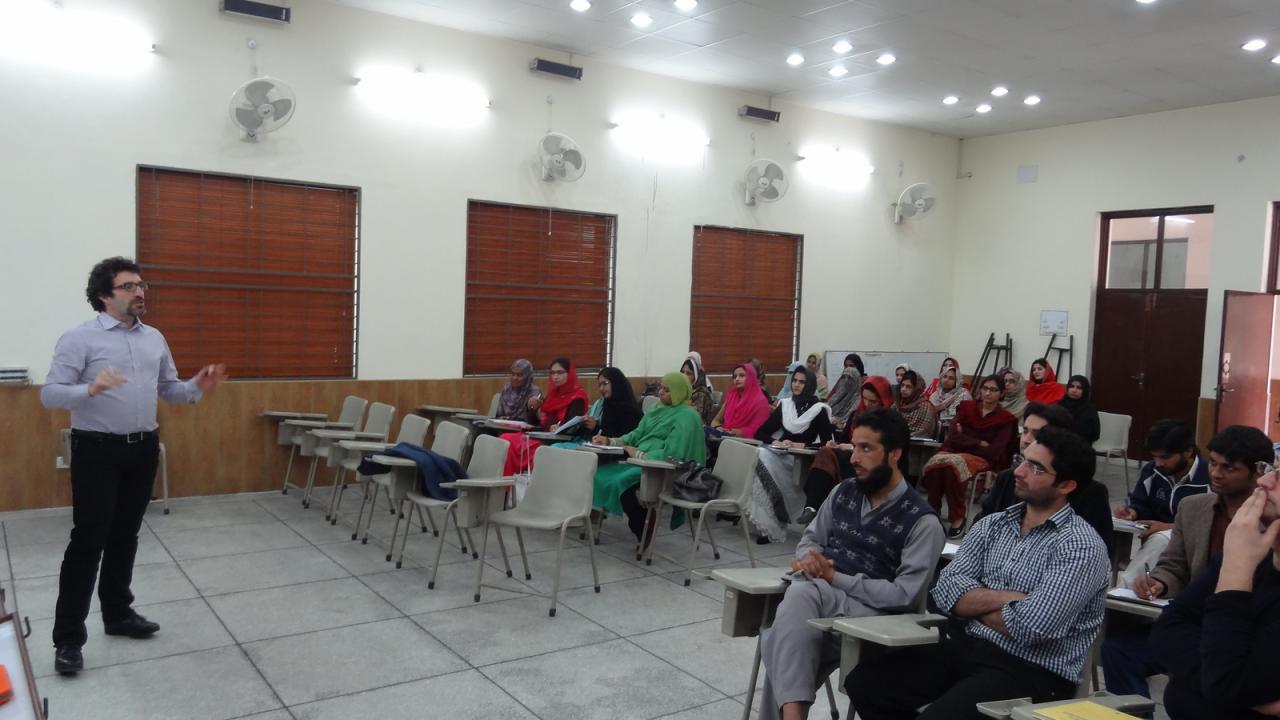
Like many developing countries, Pakistan is experiencing a drop in the number of students pursuing careers in the pure sciences. Many academically bright students prefer to study disciplines such as engineering or medicine in the hopes of a more lucrative career. In an attempt to attract bright minds to mathematics, the Abdus Salam School of Mathematical Sciences (ASSMS) was established in 2003 in Lahore, Pakistan. Affiliated with the Government College University, Pakistan, the school offers masters and doctoral degrees in mathematical sciences.
Over the past seven years, 124 students have earned PhDs at ASSMS, and the school has been designated as an "emerging regional center of excellence" by the European Mathematical Society.
One of the school's graduates, Ayesha Qureshi is currently a postdoctoral fellow in ICTP's Mathematics section. Qureshi says that ASSMS is perhaps the only research institute in Pakistan dedicated solely to higher education, and that it has played a major role in laying the foundation for her research career.
"Studying for a PhD at ASSMS helped me understand what international standards of research are and what would be expected of me as a researcher," she says.
Waleed Noor, another ASSMS graduate who visited ICTP between March and June 2013, says that the most unique aspect of ASSMS is the student-professor relationship. "Unlike other centers and universities, ASSMS is exclusively dedicated to the PhD program, so professors at ASSMS have no administrative obligations. I have personally benefitted enormously from being able to talk to the many professors about almost any mathematical subject," he says.
Both Noor and Qureshi say that this focused approach toward higher education is important because the undergraduate level courses in Pakistan are not up to international standards. "Mathematics undergraduate programs in Pakistan are poor, and students entering graduate studies generally have weak mathematical foundations, which ASSMS expends considerable resources trying to rectify," Noor explains. Qureshi agrees and says that having faculty members with exposure to research environments in other countries is another crucial factor in preparing students well to pursue research careers. "Faculty members at ASSMS come from Germany, Russia, Romania and we had visiting professors from all over the world," she says.
















